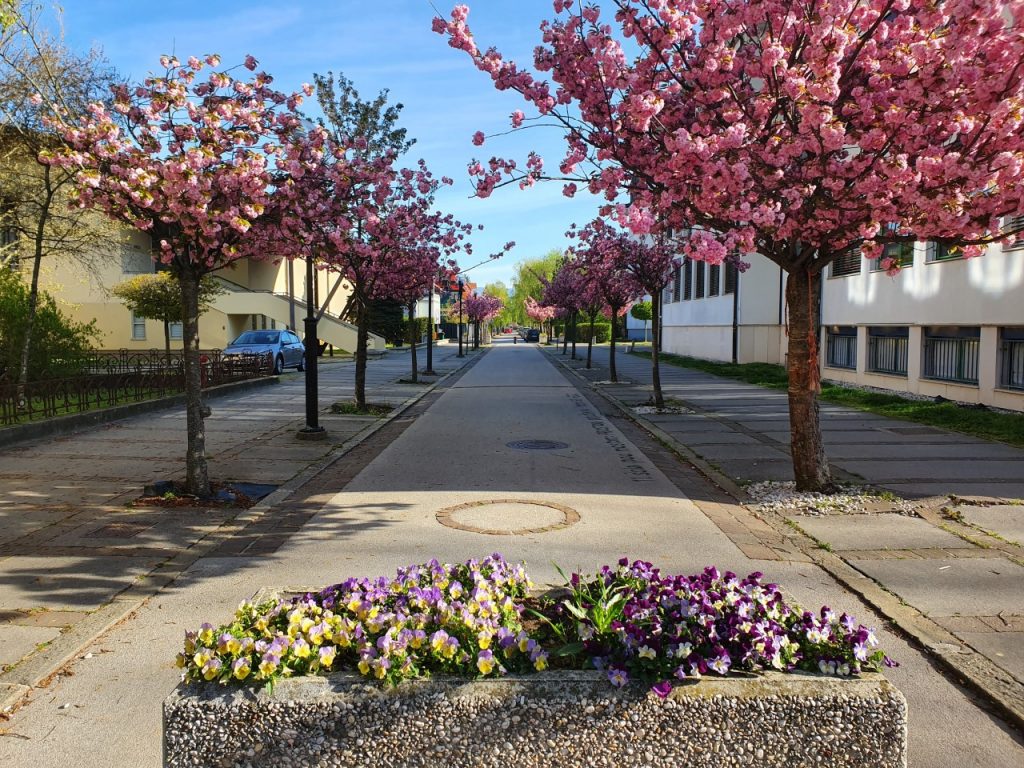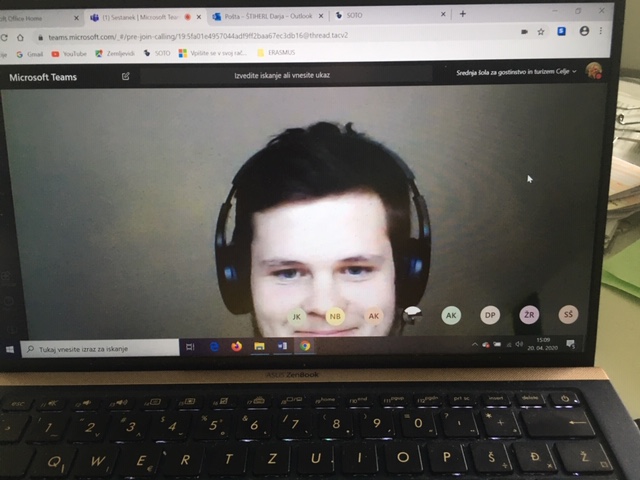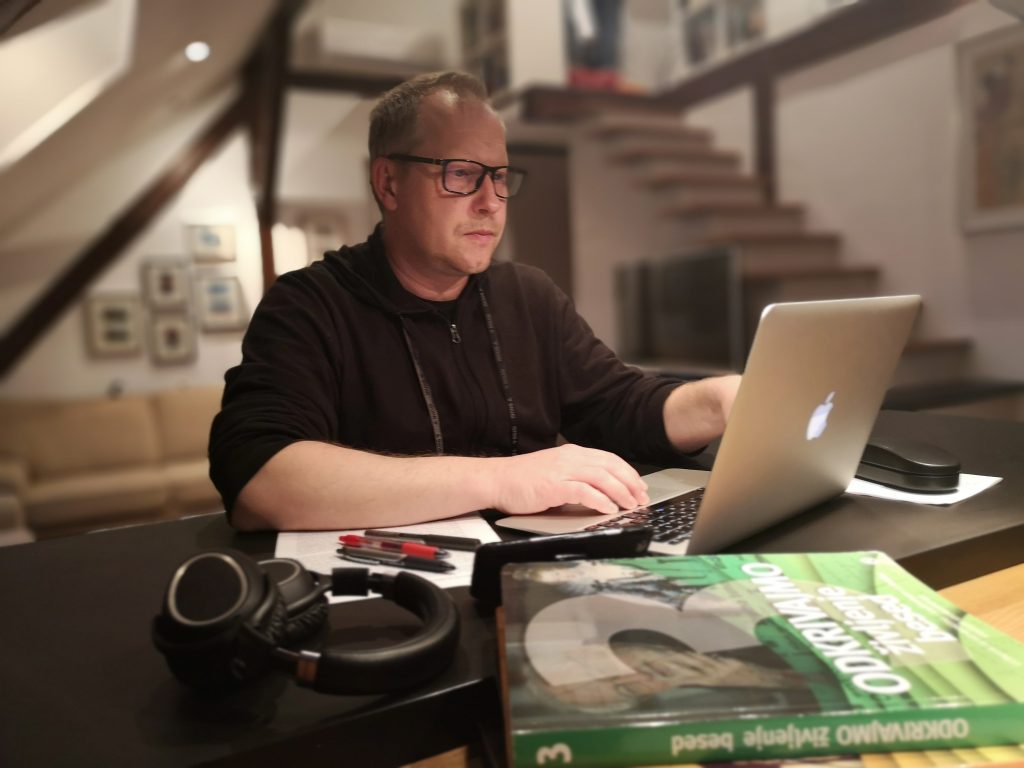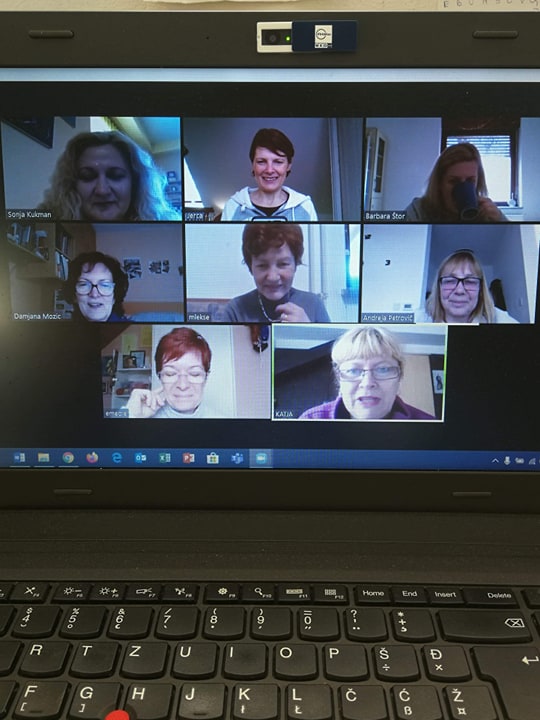
“When on Friday, 13th March 2020, it became clear that schools would be closed for a while and the work/study would be done remotely, no one knew how long the school doors would be locked for. We were confident we would stay at home for a maximum of 3 weeks. However, we never imagined that the quarantine would last so long,” says Headmistress Andreja Petrovic from Ekonomska šola Novo mesto.
We quickly had to find the ways for remote working. Some guidelines were provided by the Association of Higher Vocational Colleges, but they were rather general, not very useful for the specific situation. Surprisingly, no instructions were received from the Ministry of Education, at least not in time.
The participants in education are very helpful to one another. We looked for examples of good practices from colleagues from different schools and different education levels. We learned about different tools and tried them out – Jitsi, Zoom, VID Arnes, Exam.net. At our school the basic tools for remote working are Moodle, OneDrive and email.
Lecturer Sonja Kukman emphasises the role of the teachers. “It is extremely important that the lecturer provides support to students during and after the class. We have learned that remote working is extremely challenging for lecturers, as they have a lot more to prepare, review assignments and give feedback. We find the workload for lecturers to be much higher and the efficiency to be lower. “
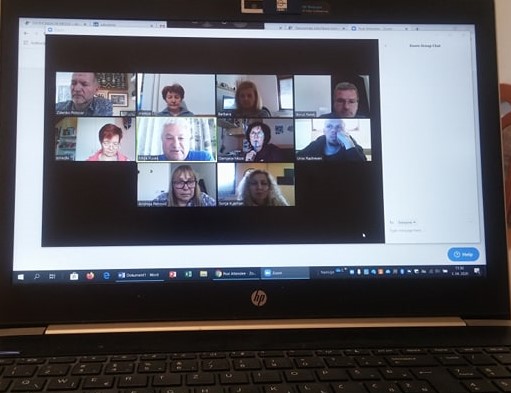
At the same time, the staff at Novo mesto College have noticed also that distance learning is more demanding also for students who have to invest much more energy in learning than in the classical learning process, since they do not get immediate feedback.
“A big problem for our students is the equipment – some do not have a good Internet connection or have poor hardware performance,” notes Lecturer Damjana Mozic. Big software providers have allowed the college to use specialized software for free, but students were unable to download it because of less powerful computers. So, they’ve still had to find their own way.
The biggest challenge is certainly taking on-line exams, for both lecturers and students. But even that is going on well. Any video conferencing tool is suitable for oral exams – the lecturer and the student only establish a video link. Written exams are a bigger challenge. “First, we used a combination of a Moodle Quiz and a video link for written exams, later we started using the Exam.net platform. We find this platform very useful for safety reasons, and we intend to organize teacher training to use it in further exams,” says Lecturer Jerca Bozic Kranjec.
Before the exams, the lecturers must test the tools with students. Special attention is also given to students who do not have computer equipment or an efficient Internet connection. We prepare personalized exams for them.
After the first exams, the lecturers presented their experience to their colleagues in a video conference and answered their dilemmas. At the end of the first exam period the exam results and experiences will be presented to all lecturers and students.
“We are convinced that distant learning is a greater burden or challenge for students, as they have to do everything on their own and therefore the level of their activity is also much higher than in the classical education process. “ Unfortunately, psychological distress has also been present due to isolation and lack of social contacts. On several occasions students have turned to the headmistress and the lecturers because they just want to hear some encouraging words. They are afraid of the situation, they are afraid that they will not be able to successfully complete the study year.
“We all wish we could return to school by mid-May, but we doubt that will happen. It might be that this study year’s lectures will be completed by remote working and we will meet again at school at the end of summer.” Colleges in Slovenia are not autonomous and cannot decide when to return to the classrooms, the decision depends on the Government and the Ministry of Education. Another problem is that the colleges get most of the information from the media, which is unofficial, and the information changes on a daily basis.

“The problem is that we do not know when the first-year students will be able to do their placement in companies, which is an important part of the study process at higher vocational colleges.” Both, placement at employers in Slovenia and Erasmus+ placement abroad have been cancelled. The National Agency is very responsive, but unfortunately, the college cannot provide students with concrete information on the opportunities of taking placement abroad. This year, students will definitely not be able to do that, despite the fact that a lot of effort and time have already been invested in the activities. Sonja Kukman states that they hope that they will enjoy their Erasmus+ placement abroad in the coming periods, regardless of the present negative experience.
“What to say in conclusion? In this new situation, we have begun to learn and are still learning. We miss what the mission of the educational work is: personal contact, interaction, two-way communication, student feedback. We miss discussions, conversations, hanging out with co-workers.”
Now all the staff at the college want to do is to go back to their workplace and to work within the school walls with students and colleagues. But there is a silver lining in (at least almost) every situation: “We can only hope that we have all learned a great deal from this – from new forms of work to the adoption of new communication techniques and, last but not least, we had the opportunity to deepen into ourselves. This is an experience that will become handy in the future work field as we started thinking about gradual introduction of blended learning just before the corona situation broke out.”
Ekonomska šola Novo mesto, Vocational College, Slovenia
Andreja Petrovič, Headmistress
Sonja Kukman, Lecturer
Jerca Božič Kranjec, Lecturer
Damjana Možic, Lecturer
